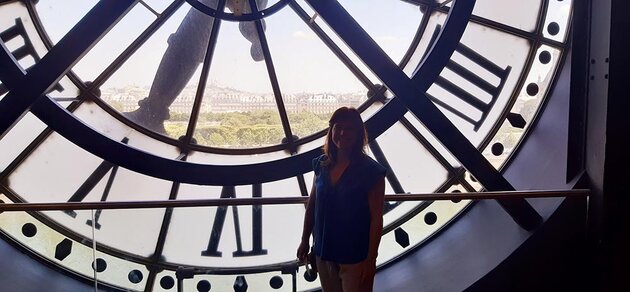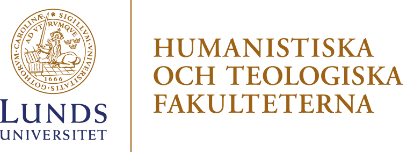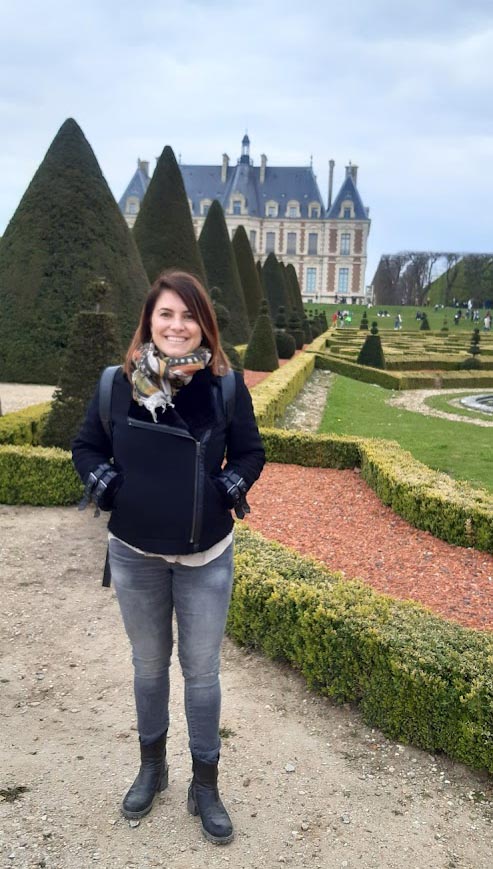Paola Derudas
Humanistiska och teologiska fakulteterna
Samarbete och tvärvetenskapliga perspektiv är verkligt givande för ens forskning. Det tycker Paola som vid två tillfällen nyttjat medel från Erasmus+ kompetensutveckling för att resa till för henne viktiga forskningscentra i Europa. Hennes bästa tips är helt enkelt: ”Res så mycket du kan!”.
Hello Paola! You recently defended your PhD at the Department of Archaeology and Ancient History. In which subject area? What is your area of research?
I have defended my PhD at the Department of Archaeology and Ancient History very recently. My PhD was in Digital Archaeology, with a focus on documentation, management and online publication of data from archaeological excavations enriched with 3D media.
You have travelled abroad on two different occasions, with Erasmus+ funding. Please tell us a bit more about your periods abroad!
I had several experiences abroad through the Erasmus+ funding. In 2021, I spent six months in Paris for a traineeship at the French National Institute of Art History (INHA). I was based at the Digital Research Service (Service Numerique de la Recherche – SNR) where I worked with web-based databases and content management system in the field of archaeology and art history. In 2022 I went to Pisa (Italy), at the Visual Computing Lab (part of the National Research Council), for a staff mobility for Training. I spent one week there, working on the design of web application for visualisation and management of cultural heritage contents. During the spring and winter of 2022 I spent three more weeks at the SNR of the INHA in Paris to work on the consolidation of semantic data modelling to describe archaeological and cultural heritage entities according to the semantic web and focus on standard ontologies (such as the CIDOC CRM).
How did you get in contact with the colleagues in Italy and France, prior to your mobilities?
The reference person at the Institute was invited to Lund to give a presentation focusing on the activities carried out at this institution. On that occasion I proposed an active collaboration between our institutions, which later became a formal agreement.
At what stages in your PhD studies did you travel abroad on these mobilities?
During the third and fourth year of my PhD.
Do you think that the exchanges have been and will be beneficial for your research and for your future career? In what ways?
I believe collaboration and interdisciplinarity are boosters for better research. I believe that bringing different perspectives into research is an improvement to its development.
Do you feel that you have created or strengthened networks that you will be able to benefit from in the future?
I do believe the connections I have created during these experiences will benefit my future work and research.
What was the best part of your mobility periods?
The best part of the mobility was to work for some months in an internationally recognised institution and to observe the similarities and differences between the two countries when it comes to the management of data and personnel. Furthermore, in the case of my French mobility, it was during the COVID-19 pandemic and France had very restrictive rules. This allowed me to explore the city of Paris under extraordinary circumstances and I could appreciate it without crowds of tourists.
What were the challenges?
Trying to exploit every moment of the mobility period for the best, I was very busy with the work and with the exploration of the city and its museums.
What about the economical side of these exchanges – were you fully reimbursed for your expenses?
I was fully reimbursed.
How did you find the process of applying for the Erasmus+ funding, and reporting back after each mobility?
It changed across the various applications, and I find the actual application quite easy and intuitive to perform.
Is there anything else you would like to tell us? Do you have any tips or suggestions for PhD students who will venture out on mobilities in the future?
Travel as much as you can! These experiences open our minds and horisons, and are profoundly enriching.


